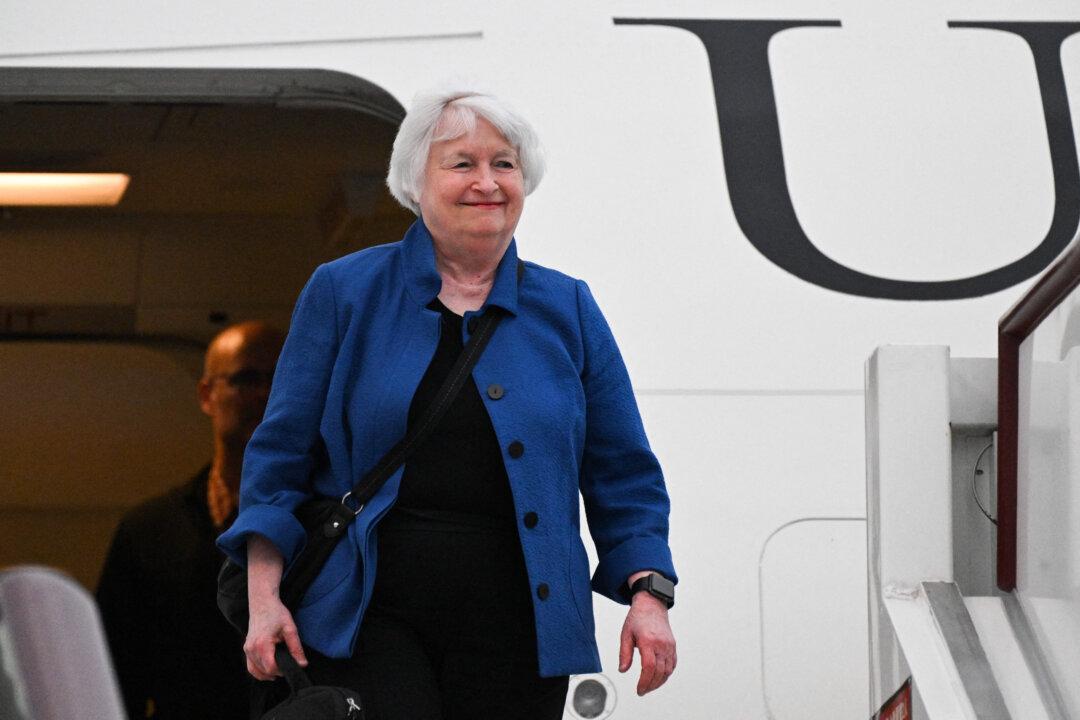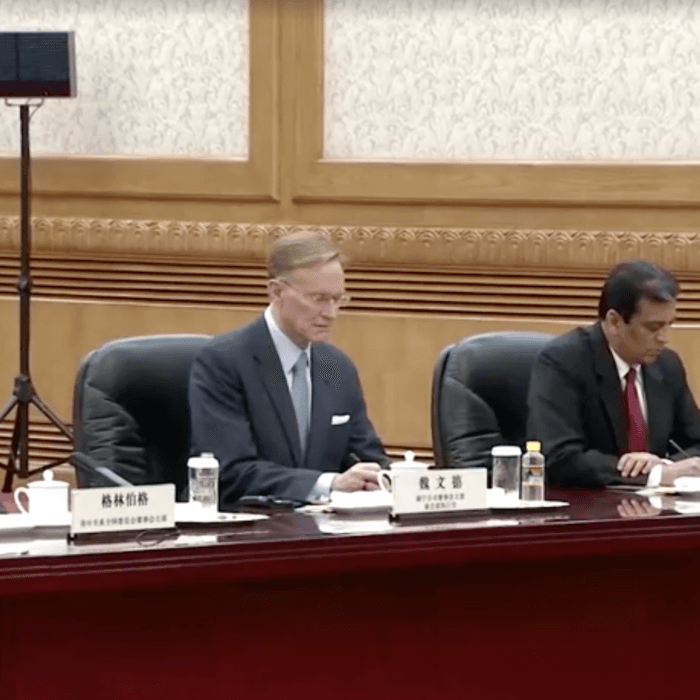U.S. Treasury Secretary Janet Yellen has arrived in China for a six-day visit, a trip she said was necessary to “advance America’s economic and national security interests.”
Ms. Yellen landed in the southern Chinese export hub of Guangzhou on April 4. Before her arrival, she took to social media platform X to explain the objectives of her trip.
“During my time in China, I’ll focus on advancing a healthy economic relationship that provides a level playing field for American workers and firms, and furthering cooperation on shared challenges like illicit finance and climate change,” she wrote.
The Treasury Department said her trip, the second in less than a year, aims to press her Chinese counterparts on Washington’s concerns about the regime’s “unfair trade practices” and “industrial overcapacity,” which poses a threat to economies across the world.
She did not rule out the possibility that the Biden administration would impose tariffs or other trade barriers on China to protect U.S. green energy industries negatively affected by China’s overproduction.
“We are trying to nurture an industry in, for example, solar cells, electric batteries, electric vehicles, and these are actually all areas where we think that massive investment in China is creating some overcapacity,” she said during a stopover in Alaska.
“I wouldn’t want to rule out other possible ways in which we would protect them.”
Ms. Yellen will start her mission by meeting with Wang Weizhong, the provincial governor of Guangdong, and vice premier He Lifeng, who oversees China’s economic and financial systems, on April 5, according to the schedule released by her department. She will have additional talks with the former vice premier, Liu He, who retired from China’s leadership last year but was said to remain an influence on policymaking.
Industrial Overcapacity
China is seeking to boost its slowing economy by pumping more cash into the manufacturing sectors at a time of weak demand at home. Western economies have become increasingly wary of a flood of cheap China-made products being dumped on the international market, especially in clean energy sectors such as solar panels and electric vehicle (EV) batteries.“Now, we see excess capacity building in new industries like solar, EVs, and lithium-ion batteries,” Ms. Yellen said during a visit to a solar module plant in Georgia that was shut down because of cheap Chinese imports.
“We have raised overcapacity in previous discussions with China, and I plan to make it a key issue in discussions during my next trip there. I will press my Chinese counterparts to take necessary steps to address this issue.”
“Established Chinese manufacturers (often vertically integrated companies benefiting from various public incentives) are largely responsible for module price drops. Such companies enjoy high production cost efficiencies thanks to the economies of scale they can achieve, which will remain unmatched by any other country in the medium term,” the report reads.

China Ties
Ms. Yellen’s trip is the start of another round of the Biden administration’s diplomatic engagement with the Chinese communist regime ahead of the U.S. elections in November.Shen Yu-chung, a political professor at Taiwan’s Tunghai University, said Washington’s recent move implies the Biden administration seeks to curb risks while avoiding cutting all ties to communist China.
“In other words, the United States still considers China a competitor,” Mr. Shen told The Epoch Times on April 3. “But [Ms. Yellen’s] visit does not imply that the two sides begin to reconcile.”
Trade with the United States remains a key issue for the Chinese regime. “Xi Jinping appears to face great pressure regarding its economy,” Mr. Shen said.
In 2023, foreign direct investment in China stood at $33 billion, down 82 percent from a year earlier, according to China’s official data released in February. The latest annual figure was also the lowest since 1993.







